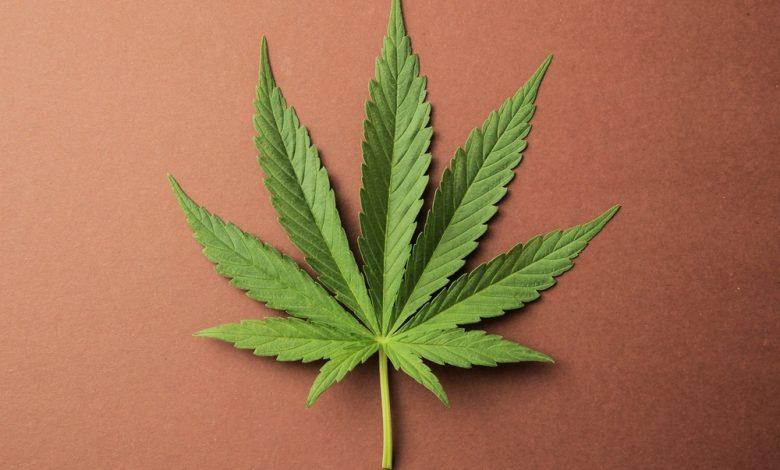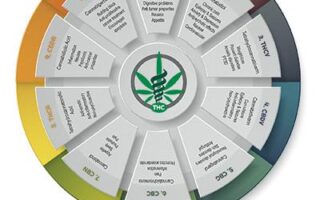In the lush shadows of the ever-evolving cannabis landscape, a new narrative is quietly emerging, one that intertwines the innocence of childhood with the complexities of a contentious plant. “Cannabis children” is a term that sparks curiosity and debate, painting a picture of young lives shaped by their parents’ choices in a world where marijuana is increasingly normalized. As legalization sweeps across nations, many families are navigating the uncharted waters of cannabis use, intertwining wellness and parenting in unique and sometimes controversial ways. This article endeavors to explore the diverse experiences of these children, examining the impact of cannabis on their upbringing, health, and social interactions, while also illuminating the voices of parents who walk the delicate line between advocacy and responsibility. Join us as we delve into this multifaceted topic, striving to understand the implications of cannabis in the lives of the next generation.
Table of Contents
- Understanding the Impact of Cannabis Exposure on Child Development
- Navigating the Complexities of Parental Cannabis Use and Child Safety
- Supporting Families: Resources and Strategies for Addressing Cannabis and Children
- Promoting Awareness: Engaging Communities in Conversations About Cannabis Use and Youth
- Q&A
- Insights and Conclusions
Understanding the Impact of Cannabis Exposure on Child Development
The effects of cannabis exposure during critical developmental periods in children can be profound and multifaceted. Emerging research indicates that children whose mothers used cannabis during pregnancy may experience various challenges, including but not limited to:
- Cognitive Impairments: Potential deficits in memory, attention, and problem-solving skills.
- Behavioral Issues: Increased likelihood of hyperactivity, impulsivity, and difficulty in social settings.
- Emotional Regulation Challenges: Greater risk of anxiety and mood disorders.
- Academic Struggles: Lower performance in school-related tasks and overall learning.
Furthermore, exposure to cannabis after birth, whether through secondhand smoke or the influence of a caregiver’s substance use, can compound these risks. The neurodevelopmental pathways altered by cannabinoids affect not only immediate health but potential long-term wellbeing. A comparison of findings from various studies underscores these concerns:
| Study | Findings |
|---|---|
| Smith et al. (2021) | Identified significant delays in speech and language development. |
| Johnson & Carter (2020) | Deterioration in emotional and social competencies noted. |
| Lee et al. (2019) | Link between prenatal cannabis exposure and ADHD symptoms. |
Navigating the Complexities of Parental Cannabis Use and Child Safety
The landscape of parental cannabis use is evolving, presenting new challenges and considerations for families. With the increasing legalization and acceptance of cannabis, parents may find themselves balancing their personal choices with concerns surrounding child safety. When parents consume cannabis, whether for medicinal or recreational purposes, it is crucial to understand the potential impacts on their children. Parents must take proactive measures to ensure that their use does not jeopardize their children’s well-being.
To cultivate a safe and informed environment, parents can adopt several strategies:
- Secure Storage: Store cannabis products in places that are inaccessible to children, like high cabinets or locked containers.
- Open Dialogue: Foster conversations about cannabis use, discussing its effects and the importance of responsible consumption.
- Awareness of Methods: Be mindful of how cannabis is consumed; for instance, edibles can be easily mistaken for sweets by young children.
| Considerations | Action Steps |
|---|---|
| Understanding Effects | Educate yourself about the different types of cannabis and their potential effects on children. |
| Legal Knowledge | Stay informed about local laws regarding cannabis use and possession, particularly around children. |
| Support Networks | Connect with other parents to share experiences and strategies for safe cannabis use. |
Supporting Families: Resources and Strategies for Addressing Cannabis and Children
As discussions around cannabis use evolve, it’s crucial for families to understand the implications for children. Parents and guardians can benefit from a variety of resources designed to foster healthy conversations about cannabis, its effects, and legality. Consider implementing the following strategies to create a comfortable space for dialogue:
- Education: Equip yourself with factual information regarding cannabis, including its medicinal and recreational uses, risks, and legal status in your area.
- Open Communication: Encourage open conversations where children feel safe to ask questions without fear of judgment.
- Age-Appropriate Discussions: Tailor conversations to the child’s age, ensuring the information is comprehensible and relevant to their experiences.
Additionally, providing support to families grappling with cannabis-related concerns can help mitigate risks. Various community and online resources can assist in offering guidance and support:
| Resource | Description |
|---|---|
| Community Workshops | Interactive sessions that educate families on cannabis implications and coping strategies. |
| Helplines | Confidential support lines provide immediate advice and resources for parents. |
| Support Groups | A safe space for parents to share experiences, challenges, and solutions. |
Promoting Awareness: Engaging Communities in Conversations About Cannabis Use and Youth
In today’s rapidly evolving society, understanding the complexities surrounding cannabis use, particularly among youth, is vital. Communities must bridge the gap in knowledge by fostering open and informed discussions about the implications of cannabis consumption. Hosting educational workshops and family-oriented forums can facilitate these conversations, empowering parents and guardians with the tools they need to navigate this nuanced topic.
Moreover, collaboration among local organizations, schools, and healthcare providers can enhance awareness initiatives. Consider creating targeted informational campaigns that address the following:
- Impacts on developing brains: Highlighting research on how cannabis affects youth development.
- Legal landscape: Informing communities about local regulations regarding cannabis use.
- Resources for support: Providing access to counseling and educational materials.
| Program | Description | Target Audience |
|---|---|---|
| Youth Workshops | Interactive sessions focusing on the effects of cannabis. | Teens and parents |
| Community Panels | Expert discussions on cannabis legislation and youth health. | Residents and educators |
| Support Groups | Providing a safe space for sharing experiences and resources. | Parents and guardians |
Q&A
Q&A: Understanding Cannabis Children
Q: What does the term “cannabis children” refer to?
A: The term “cannabis children” generally refers to the offspring of parents who use cannabis, whether for recreational or medicinal purposes. This can encompass a variety of scenarios, from those raised in a fully cannabis-friendly environment to children whose parents might consume it discreetly or for therapeutic reasons.
Q: Are there specific studies or research focusing on children raised in cannabis-using households?
A: Yes, recent research has begun to explore the effects of parental cannabis use on children. These studies examine various aspects, including developmental, psychological, and social implications, although the field is still developing, and findings can vary widely based on numerous factors.
Q: How might parental cannabis use impact children’s development?
A: The impact of parental cannabis use on child development can be complex. Some studies suggest that extensive use might lead to potential cognitive or behavioral issues in children, while others emphasize more significant influences such as socio-economic factors. As with many subjects in child development, outcomes can differ widely based on context and environment.
Q: What are some societal attitudes toward cannabis and parenting?
A: Societal attitudes toward cannabis and parenting are evolving, especially as legalization spreads in various regions. Some view cannabis as a harmless substance that many adults responsibly enjoy, while others maintain concerns about its effects. The discussion often reflects broader conversations about substance use, legality, and health implications.
Q: How do cannabis laws affect parents and their children?
A: Cannabis laws vary greatly by location, influencing how parents navigate their consumption. In regions with legalized cannabis, parents may find it easier to integrate its use into their lives; however, in areas where it remains illegal, parents might face legal risks or social stigma, potentially leading to secretive behaviors that could impact the family dynamic.
Q: What advice do experts give to parents who use cannabis?
A: Experts generally advise parents to approach cannabis use with mindfulness, ensuring it does not interfere with their parenting responsibilities. Open communication with children about cannabis, appropriate usage, and understanding the importance of creating a supportive and healthy environment are crucial.
Q: Are there resources available for parents who have questions about cannabis use?
A: Yes, a variety of resources are available, including parenting classes, counseling services, and online forums that address substance use. Many organizations focus on the intersection of cannabis and parenting, offering information, support, and strategies for balancing personal choices and family health.
Q: What is the future of research on cannabis children?
A: The future of research on cannabis children is likely to be comprehensive, focusing on long-term effects, social implications, and parental experiences. As the landscape of cannabis use continues to evolve, so too will the exploration of its impacts on families, ultimately guiding more informed conversations and policies.
Insights and Conclusions
As we conclude our exploration into the world of “cannabis children,” it’s essential to recognize the complexities surrounding this topic. We have examined the varied experiences of families navigating the intersection of childhood and cannabis, reflecting a spectrum of emotions, challenges, and triumphs. These stories highlight the resilience and adaptability of both parents and children as they seek understanding and support in an ever-evolving societal landscape.
In this journey, we have witnessed how education, open dialogue, and informed decision-making can empower families. While the conversation around cannabis remains nuanced, it is imperative to approach it with empathy and a commitment to learning. Children will always thrive best in environments that foster understanding, compassion, and stability regardless of the choices made by those around them.
As society continues to grapple with cannabis legalization and its implications, let us hold space for the voices of families who navigate these waters. Their experiences can illuminate a path toward greater acceptance and informed policies, ensuring that every child’s well-being is the priority. the road ahead is paved with both questions and opportunities—a chance for all of us to grow, learn, and adapt in the spirit of understanding.


